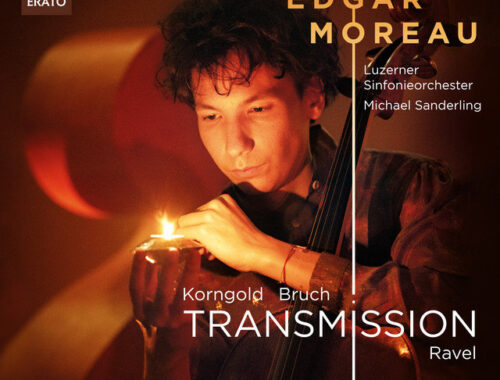GRAMOPHONE: From Where I Sit – November 2021
 We all love a drama, most especially one that stems from an unforeseen crisis. During this year’s foreshortened Prom season tenor Simon O’Neill, the eponymous hero of Glyndebourne’s Tristan und Isolde realised after act two that his voice was never going to make it through the strenuous delirium of act three and his Melot, Neal Cooper, who had in fact sung the role and was presumable acting as O’Neill’s cover down in Sussex, voiced O’Neill’s physical agonies from the side of the stage. I wasn’t there but I know from experience what a grateful audience can do for a last minute substitution, carrying them forward from bar to bar, willing them to succeed.
We all love a drama, most especially one that stems from an unforeseen crisis. During this year’s foreshortened Prom season tenor Simon O’Neill, the eponymous hero of Glyndebourne’s Tristan und Isolde realised after act two that his voice was never going to make it through the strenuous delirium of act three and his Melot, Neal Cooper, who had in fact sung the role and was presumable acting as O’Neill’s cover down in Sussex, voiced O’Neill’s physical agonies from the side of the stage. I wasn’t there but I know from experience what a grateful audience can do for a last minute substitution, carrying them forward from bar to bar, willing them to succeed.
We all remember the Prom night when Thomas Allen spectacularly keeled over midway through Orff’s Carmina Burana and Andre Previn was a whisker away from uttering the immortal line ‘Is there a baritone in the house?’ when one actually appeared from amidst the Promenaders.
Of course, substitutions ahead of an event, even those happening at the eleventh hour, engender a mix of disappointment and/or curiosity in us. Do we ask for a refund? Do we support the incumbent in the hope that maybe, just maybe, a star may be born? And to what extent does willing them to succeed colour our appreciation? As a boy, I was lucky enough to catch Maria Callas’ legendary Tosca from a terrible slips seat at the Royal Opera House – but I might easily have spent my hard-earned pocket money watching Marie Collier famously stand in for Callas at the other three performances of that run. Collier made headlines for obvious reasons but press and public overkill dubbing her a Callas-in-waiting did her no favours.
Likewise Barbra Streisand’s understudy for her West End run of Funny Girl. She was on so much she had her own fan club – but the fact that I can’t remember her name is a cruel irony. Mind you, as a stage-struck 13-year-old I bunked off from school and stood at the back of the stalls for one of Streisand’s matinees and with only float mics to support her I had problems hearing her in the dialogue. And even with electronic enhancement in the numbers the voice was surprisingly small. I have remained a huge fan over the years but my 13-year-old self couldn’t conceal his disappointment. She was so obviously bored and walking through the show.
Is it too fanciful to suggest that substitutions in the classical world were classier at the beginning of my concert-going life? I remember a sign announcing that a certain mezzo was indisposed for Elgar’s Sea Pictures and that her place would be taken by Janet Baker; I remember booking for Paul Kletzki and getting Otto Klemperer. The main work was Stravinsky’s Petrushka – hardly a natural fit for Klemperer – and though the puppetry was, well, wooden, no one was rude enough to say so.
Mind you, some substitutions are just too upsetting to accept gracefully – and when Herbert von Karajan pulled out of a much-anticipated Philharmonia performance of Verdi’s Requiem back in the day half his starry soloists went with him. Poor Rafael Frühbeck de Burgos had his work cut out that night. But thankfully no one dubbed him the new Karajan.




